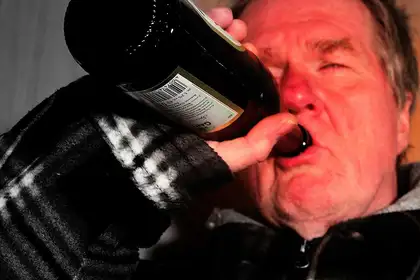
New research shows around a quarter of Kiwi men aged over 50 are drinking more than five drinks on typical occasions, which is considered binge drinking.
Drinking alcohol becomes more dangerous in later life, but a new report released today by the Health Promotion Agency (HPA) shows that older New Zealanders are drinking more often and in a more harmful manner than older adults in many other countries.
An international team funded by the HPA and led by researchers from Massey University’s Health, Work and Retirement Longitudinal Study and the University of Auckland’s Centre for Addiction Research used data from studies of ageing from around the world to compare alcohol use patterns. The data from more than 3,200 New Zealanders over the age of 50 was compared with data from more than 62,000 similarly aged adults from England, the United States, China, Russia, India, Mexico, Ghana and South Africa.
Dr Andy Towers, research co-leader from Massey University says this is the first international comparison of the drinking habits of adults aged 50 and over. “It’s a huge undertaking, and what we found was quite worrying. Older New Zealanders are more likely to drink, to drink more often, and to drink in more harmful quantities than older adults in most other countries included in this study. Older New Zealand men particularly showed some of the most harmful drinking patterns,” he says.
The report reveals 83 per cent of older New Zealanders drink alcohol with roughly equivalent proportions of men and women being drinkers. With the exception of England where 87 per cent of older adults drink, this contrasted markedly with the other seven countries where older adults were less likely to drink and where women were much less likely to be drinkers than men.
Dr David Newcombe and Professor Janie Sheridan, research co-leaders from the University of Auckland, also note that older adults in New Zealand also tend to drink more often. “Approximately 29 per cent of older women and 39 per cent of older men in New Zealand drank four or more days a week. Although this is less than seen in Ghana or China, this is a greater proportion than seen in other countries such as the United States and Russia, where drinking on one day a week is more usual,” Professor Sheridan says.
The majority of older adults in all countries in this study consumed only 1-2 drinks on a typical day when drinking. However, older men from New Zealand were more likely than most to drink a higher quantity of alcohol, on each day they drank.
Dr Newcombe says the study found that 26 per cent of older New Zealand men who drink, consumed more than five drinks on typical occasions, compared to only six per cent of older New Zealand women. “Realistically this is a binge. We are showing that one in four older male drinkers in this country binge when they choose to drink. Only China [33 per cent] and Mexico [27 per cent] had a higher proportion of older men regularly drinking this amount,” he says.
Approximately 18 per cent of older drinkers in New Zealand were also identified as “frequent” or “very frequent” heavy drinkers due to the amount they typically drank and how often they did so. This was a greater proportion than all countries except China and South Africa.

Dr Andy Towers from the School of Health Sciences.
Dr Towers says in comparison to eight developed and developing countries, the drinking habits of older New Zealanders are not normal. “Many older New Zealanders are drinking at levels unlike those seen overseas, and at levels likely to place many of them at serious risk of harm. We criticise youth and young adults for their harmful drinking patterns but our research clearly shows that many of our parents and grandparents are harmful drinkers as well,” he says.
In a separate analysis focusing on the drinking habits of older Māori and non-Māori, the researchers found that once they controlled for differences in socioeconomic status there was no difference in the proportion of older Māori and non-Māori who were classified as hazardous drinkers.
“This is not surprising,” Dr Towers states. “We know that socioeconomic status is a key driver of drinking habits. But we also know that ageing Maori and non-Maori having significant differences in their socioeconomic status. Our analysis simply indicates that wealth, not ethnicity, is a key driver of harmful drinking patterns in older New Zealanders.”
Drinking patterns of older New Zealanders: National and international comparisons was written by Dr Andy Towers (School of Health Sciences, Massey University), Professor Janie Sheridan and Dr David Newcombe (Centre for Addiction Research, University of Auckland).